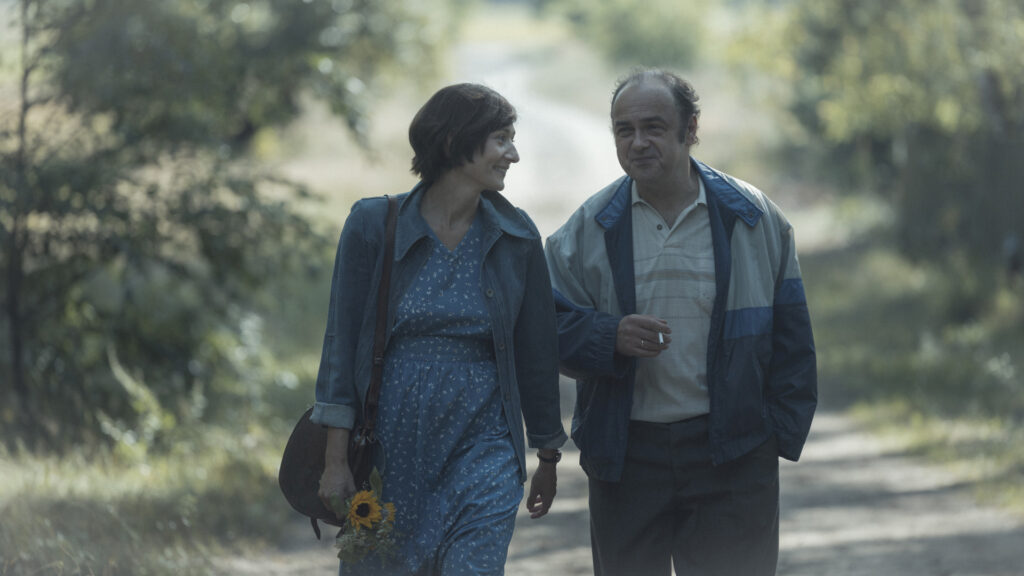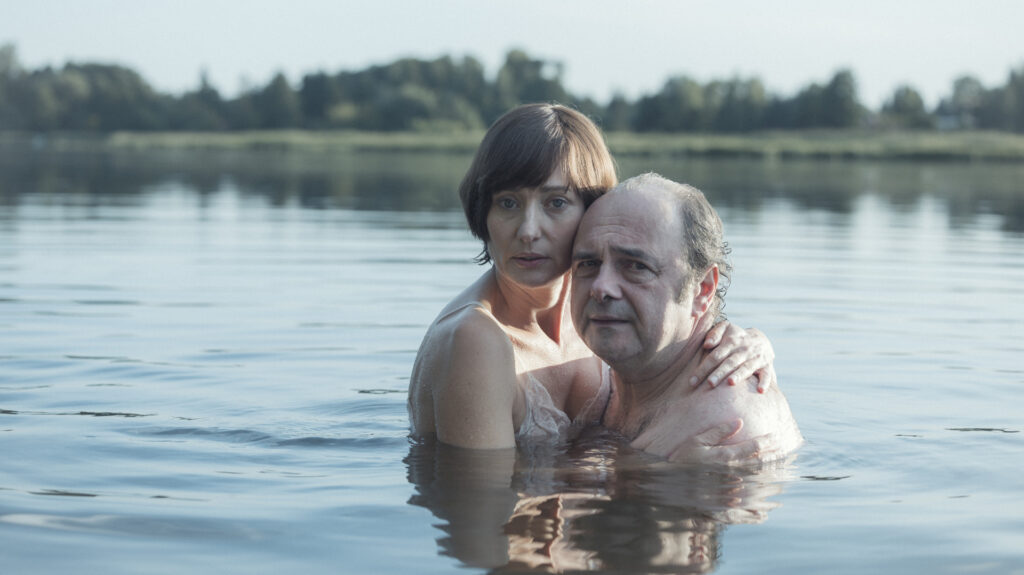Production has begun on “Our Revolution. The Love Story of Grażyna and Jacek Kuroń”, directed by Piotr Domalewski. This is a tale of a love so powerful it could change the world – and of people who, under dictatorship, paid the ultimate price for freedom. Arkadiusz Jakubik takes on the role of legendary opposition leader Jacek Kuroń, while his wife Grażyna – known as Gajka – is portrayed by Magdalena Popławska.
The first stills from the set reveal the central characters of this extraordinary story.
STORY OF GREAT LOVE
“Our Revolution. The Love Story of Grażyna and Jacek Kuroń” is about love that defies imagination. And yet, this love was real.
He – fiery, loud, charismatic. She – brave, tender, full of warmth. Madly in love and convinced they could change the world together – Jacek and Grażyna Kuroń sacrificed their private lives to dedicate themselves to the struggle for freedom. Their modest apartment became the “headquarters” of the opposition – a meeting place for people willing to risk everything for a better tomorrow. But every great cause comes at a price: moments of deep intimacy alternated with years of separation, divided by prison walls. The imposition of martial law forced them to make choices no one would ever want to face. Can love survive in times so unbearably hard?
Arkadiusz Jakubik on playing Jacek Kuroń:
“Before stepping onto the set, I felt some stress, but once we started shooting – I let it go. I stepped into Kuroń’s shoes, but made to fit my size. I’m not trying to mimic him or copy his mannerisms. For me, the most important thing is the man and his emotions – and that’s what the audience connects to. My Kuroń won’t be a monument. I don’t want to portray him on a pedestal, but as a flesh-and-blood man, with all his flaws. And yet, as a historical figure, as the father of Polish freedom, he remains for me an authority and a hero of my time.”
Magdalena Popławska on playing Grażyna “Gajka” Kuroń:
“Gajka was exceptional – without her, his story might have turned out very differently. She never made it into the history books as visibly as he did, just like so many women of that era. They worked in the shadows: sending packages to prisons, raising children, standing in endless lines, passing on information, fighting for freedom. They did everything so that men could go on to change history. I am truly glad that I can now tell her story.”
Joanna Liszkiewicz-Kuroń, daughter-in-law of Jacek and Gajka:
“For our family, this film about Gajka and Jacek is deeply personal. Their life story is a ready-made script. We are waiting impatiently for the premiere.”
Producer Robert Kijak adds:
“This year marks the 45th anniversary of the August Agreements – a landmark event in Polish history. Behind this historic moment stood real people of flesh and blood, who gave so much in the fight for freedom – sometimes everything. I am proud that we can tell the story of Jacek and Grażyna Kuroń, and that we have the full support and trust of their family. That means a great deal to us.”
Director Piotr Domalewski (“Silent Night,” “The Acolytes”):
“Our Revolution goes beyond the framework of a classic biopic. We focus on the most dramatic period in their marriage – the time of internment during martial law and Grażyna’s illness. The communist era showed that the state could forbid people everything – but it could not forbid love. Love for another person, and love for an Idea. That’s what our film is about.”
Don’t Burn the Committees
Since last year, acclaimed documentary filmmakers Maria Zmarz-Koczanowicz and Jacek Petrycki have been working on the film “Don’t Burn the Committees.” The documentary features interviews with those who worked with and befriended Kuroń – including Adam Michnik, Seweryn Blumsztajn, Helena Łuczywo, Anna Bikont, Ludwika Wujec, Andrzej Seweryn, Jan Rulewski, and Adam Wajrak. These testimonies will be combined with archival footage, including recordings of Jacek Kuroń himself, and never-before-seen materials by Marcel Łoziński and Jacek Petrycki.
The producer of the documentary is NEXT FILM, co-produced by the Documentary and Feature Film Studios in Warsaw, and co-financed by the Polish Film Institute.
Both films are set to premiere in 2026 – the 50th anniversary of the June 1976 protests in Radom and Ursus, and the founding of the Workers’ Defense Committee (KOR).

